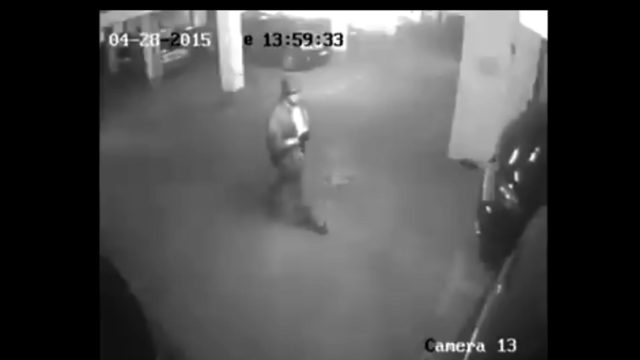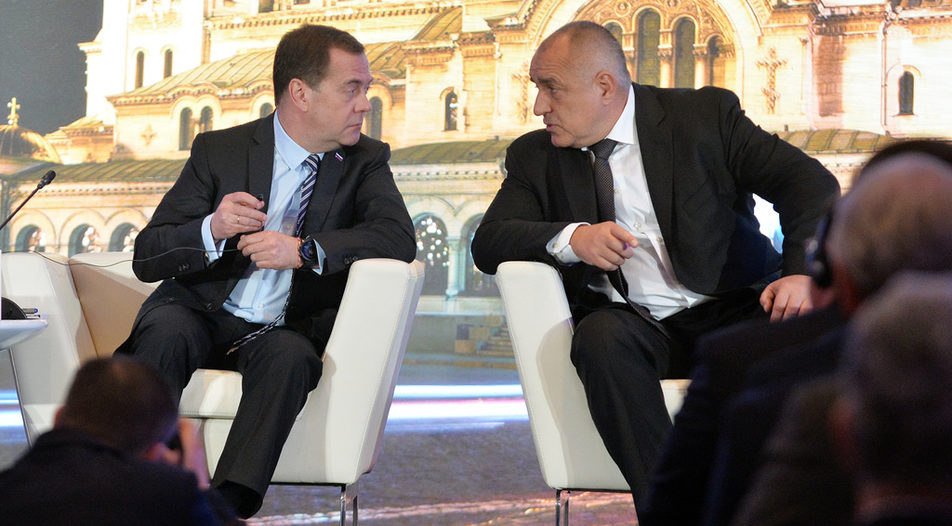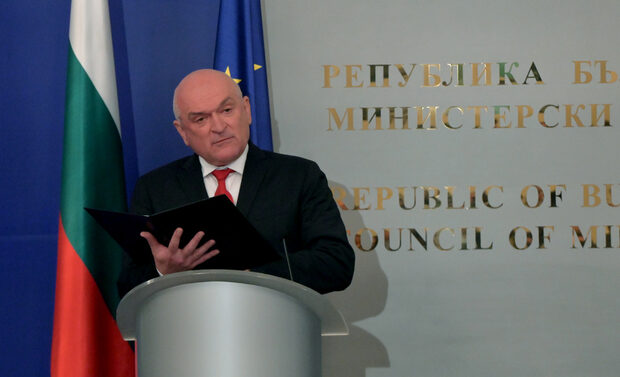In classic spy parodies, the moment the main character is ready to do his move, it turns out that he is without pants. Or instead of a 9 mm Luger, he is holding a cucumber. It seems that the series of spy scandals that have shaken Bulgaria over the past year is going the same way. The very real attempt to murder Bulgarian arms dealer Emilian Gebrev, quite possibly with a Novichok-type nerve agent, an investigation that uncovered undeniable links between the attack on Gebrev in Bulgaria and the attempted poisoning of a former Russian intelligence officer in the UK, and Russia's all too visible meddling in Bulgarian politics, has recently turned into vaudeville.
The story began intriguingly in January 2019, when a Capital Weekly investigation exposed a potential link between the Russian intelligence service operation in Salisbury, England, which attempted to wipe out ex-Russian secret agent Sergei Skripal in March 2018, and a cold case from Bulgaria from 2015. Back then, Mr Gebrev, his son and an executive at their weapons production firm EMCO almost lost their lives, potentially due to intoxication with a Russian-sourced chemical nerve agent. Pressured by the British authorities, the Bulgarian prosecution reopened the Gebrev case later in 2018 and indeed found a link between the two operations.
The Russophiles who were secret Russian agents
Then, in the second season of the Bulgarian-Russian spy drama, things already started going south. On September 9 of last year the mouthpiece of the opposition Bulgarian Socialist Party (BSP) - Duma newspaper, reported that its ex-editor-in-chief Yuri Borissov, who is now secretary of the National Russophile Movement, had been taken into custody in relation to a spying investigation. The following day it turned out that the real target of the investigation was the Russophile Movement chairman Nickolay Malinov who was charged with spying for two Russian organizations - the Russian Institute for Strategic Studies (RISI) and the Double-headed Eagle Society, both of which have links to the Kremlin.
In the context of that investigation, Bulgaria expelled a Russian diplomat but the scandal had the distinct whiff of a domestic political spat, in which President Roumen Radev and Prosecutor General Ivan Geshev were involved. RISI had paid for a sociological poll prior to the presidential elections in 2016. The results had been used to support the candidacy of the current Bulgarian head of state Roumen Radev who indeed calls for closer relations with Russia. Already as President, Mr Radev was critical of the procedure for selection of the next Prosecutor General, in which Mr Geshev was the sole nomination. He even delayed Mr Geshev's appointment in 2019, therefore the spying charges brought by the Prosecutor's Office against the head of the Russophile Movement actually looked aimed at pressuring Mr Radev.
Just as the story was gathering steam, Mr Malinov - formally indicted for spying for foreign organizations originating in Russia - suddenly appeared in a photo shaking hands with Russian President Vladimir Putin in the Kremlin on November 4, after receiving Moscow's State Prize for the Day of National Unity. It emerged that Andon Mitalov, a judge at Bulgaria's Specialized Criminal Court, had released Mr Malinov on bail for a limited period, so that the head of the Russophile Movement could visit the very country he was accused of spying for.
Some counterproductive aid from the Big Brother
As the spy drama was increasingly turning into tragicomedy, a new character entered upon the stage in an attempt to save the show. Unfortunately, the effect was quite the opposite. At the beginning of February 2020, the US Ambassador to Sofia, Herro Mustafa, told NovaTV that very soon Washington would designate a Bulgarian official suspected of corruption and ban him from entering the USA. The suspense in Sofia rose again.
A few days later the US Embassy announced that the Bulgarian citizen designated by the US Secretary of State is Judge Andon Mitalov. The official statement claimed that "in his official capacity, Mitalov was involved in corrupt acts that undermined the rule of law and severely compromised the independence of democratic institutions in Bulgaria".
The news was, to put it mildly, anticlimactic, as in the time span between Ms Mustafa's interview and the day the name of the judge was released, people speculated wildly about who the designated official would be. Some thought it might be the Member of Parliament from the Movement for Rights and Freedoms and media mogul Delyan Peevski, because obviously, he is the epitome of corruption in Bulgaria.
The designated official is a little-known judge who has never been involved with high-profile cases, with his cardinal sin being that he released on bail the head of the Russophile Movement and alleged spy so that Mr Malinov could travel to Moscow. While some people holding high office heaved a sigh of relief, many Bulgarians having sympathy for pro-Euro-Atlantic, anti-corruption views groaned with chagrin. While it is clear that members of the latter group unduly expected an outside actor (who has good relations with this government, especially in the security field) to fix Bulgaria's corruption problems, the barring of Mr Mitalov looked like an excessive use of force by the US that, in fact, completely missed the big picture. And disillusioned many who believed the US has serious plans to help fight the overwhelmingly high-level corruption in Bulgaria.
Debacles pile up
On the contrary, the decision to bar Judge Mitalov has likely solidified the notion that Prosecutor General Ivan Geshev had struck a deal with the US to chase alleged Russian spies that leaves him leeway to pursue his own agenda on the domestic arena.
Moreover, no piece of evidence of Mr Mitalov's alleged corrupt acts has been presented by the US, although Bulgaria's Supreme Court of Justice (SCJ) and its Disciplinary Committee asked for such evidence immediately after news of the ban broke. So far, the SCJ has found no legitimate reasons to suspend the magistrate and at the time this issue of KQ went to print, he was back at work.
This is not the only debacle in that part of the spy story. At the beginning of March, Yuri Borissov said that he had successfully sued the Interior Ministry for unlawfully taking him into custody in September last year. In an interview for bTV Mr Borissov said that the questions his interrogators asked him during the time of his arrest were all but direct quotes from an article on the Russophile Movement published by Telegraph daily, one of the newspapers controlled by Delyan Peevski.
"There was not a single question linked to spying. The same goes for the interrogations of my colleagues," Mr Borissov said, adding that the investigators inquired about the political goals and connections of the Russophile Movement instead. Incidentally or not, when the spying allegations against the Russophile Movement chairman Nickolay Malinov were brought up in 2019, they repeated almost word for word an article in Monitor newspaper, another media outlet owned by Mr Peevski.
Secondary scenarios that are more interesting
A couple of side stories unfolded alongside the disappointing main spying plotline featuring Nickolay Malinov and the Russophile Movement. At the end of January, the prosecutor general informed Foreign Minister Ekaterina Zaharieva that two Sofia-based Russian diplomats had been spying for Moscow. One of them was holding the post of the first secretary in the consular section of the Russian embassy, while the other was a member of the trade section.
The Prosecutor's Office said the first individual was suspected of "carrying out reconnaissance work related to the Bulgarian electoral procedures" since 2017. The second one had allegedly collected intelligence including "state and professional secrets in the sphere of energy and energy security of the country [since October 2018] that was sent to the intelligence services in Moscow". The alleged spy had also been meeting with "Bulgarian citizens who had access to information in that sphere". While the Russian Embassy said that Sofia had presented no evidence to back the charges made by the prosecution and protested the fact that the Bulgarian authorities had publicized the allegations before informing the embassy about them first, it met the deadline set by the Bulgarian foreign ministry and sent its two diplomats home.
The Prosecutor's Office, already super-active on Russia-related topics, announced on January 23 that it has issued European arrest warrants, Interpol red notices and requests for the international hunt for three unnamed Russian citizens charged with the attempted murder in 2015 of the three people who appeared at the beginning of our story - the arms dealer Emilian Gebrev, his son Hristo and Valentin Tahchiev, an executive at Gebrev's arms production firm EMCO. The alleged perpetrators were accused of having attempted to kill the victims "in a way and by means dangerous to the lives of many" in the period between April 28 and May 4, 2015, using a still unidentified organic phosphorus compound, the prosecutor's office said in a statement. In response, Russian Foreign Ministry spokesperson Maria Zakharova said that Bulgaria ought to follow established international criminal procedures and work together with the Russian authorities on the Gebrev case.
It appears that the sudden rise in Russia-related anti-spying activity is paying off for the Bulgarian authorities from a totally unexpected direction. Although Prime Minister Boyko Borissov tries to keep his distance and even acts as an advocate of Moscow when alleged Russian spies are being indicted and sent back home, he has managed to find a connection between an investigation of a money-laundering scheme in Spain potentially linked to him and the recent rough handling of Russian agents in Bulgaria. According to Mr Borissov, the investigation conducted by Spanish police and anti-corruption authorities of possible links between him and purchase of an expensive house in Barcelona has been initiated by some unidentified pro-Russian forces who aim to divert Bulgaria from its Euro-Atlantic path. Even though the allegations of a link between Mr Borissov and the Barcelona house are two-years-old and there is no hard proof that he is implicated, he decided to play the Russian card. The prime minister and media outlets friendly to his government even managed to link the Catalan magazine El Periodico (which made the investigation public) and the local anti-corruption agency to Russian intelligence. Go figure!

In classic spy parodies, the moment the main character is ready to do his move, it turns out that he is without pants. Or instead of a 9 mm Luger, he is holding a cucumber. It seems that the series of spy scandals that have shaken Bulgaria over the past year is going the same way. The very real attempt to murder Bulgarian arms dealer Emilian Gebrev, quite possibly with a Novichok-type nerve agent, an investigation that uncovered undeniable links between the attack on Gebrev in Bulgaria and the attempted poisoning of a former Russian intelligence officer in the UK, and Russia's all too visible meddling in Bulgarian politics, has recently turned into vaudeville.
The story began intriguingly in January 2019, when a Capital Weekly investigation exposed a potential link between the Russian intelligence service operation in Salisbury, England, which attempted to wipe out ex-Russian secret agent Sergei Skripal in March 2018, and a cold case from Bulgaria from 2015. Back then, Mr Gebrev, his son and an executive at their weapons production firm EMCO almost lost their lives, potentially due to intoxication with a Russian-sourced chemical nerve agent. Pressured by the British authorities, the Bulgarian prosecution reopened the Gebrev case later in 2018 and indeed found a link between the two operations.












